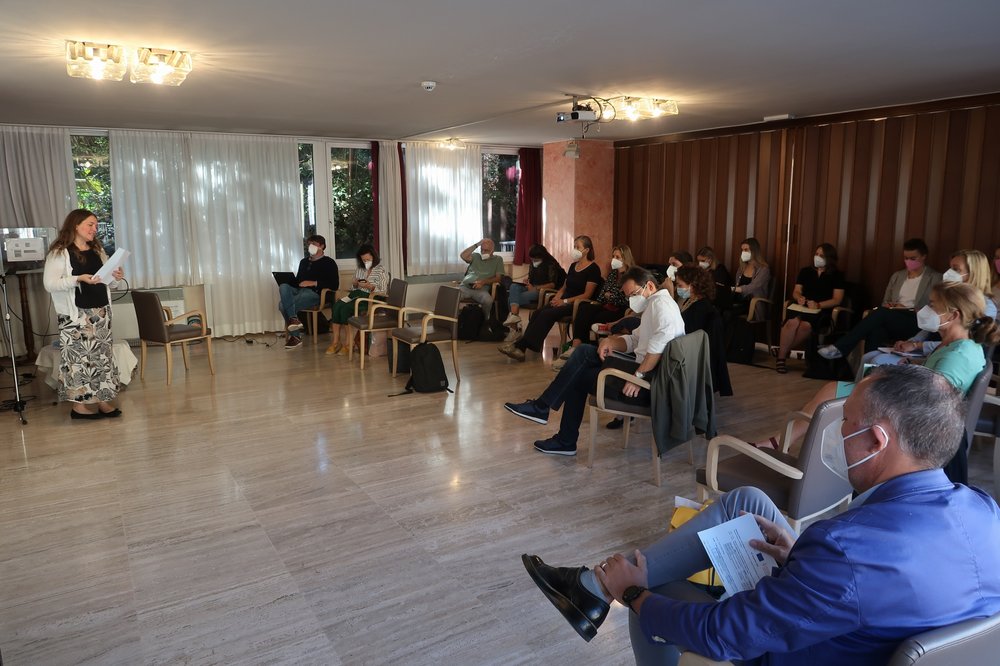These days we are facing a global, but especially European, challenge regarding the energy crisis that is having a major impact on energy accessibility for the most fragile people. As it is well known, most of the electricity produced, on average, comes from fossil, which means that in the summer period the access to cool places is crucial to have educational opportunities to raise awareness in changing the behaviour of older adults exposed to the heat waves. In this sense, the meeting held in Treviso in September, with all the project partners, highlighted the potential that can be borrowed from other experiences made in the school sector and in the management of other public buildings, for which the renegotiation with energy providers, for instance, has produced significant social benefits. At this point, we consider useful to orient the activities not only to elaborate the planned contents but, above all, for the update of knowledge and possibilities for the benefit of the most fragile citizens.
The second international meeting of the HOPE project took place on 19 th & 20 th September in Treviso, italy. The partners were hosted by ISRAA and Oscar Zanutto, who is in charge of the European project office of ISRAA opened the HOPE Meeting at the Casa Albergo Salce conference hall.

The Mayor of Treviso Mario Conte brought the city's greetings together with the President of ISRAA Mauro Michielon, who emphasised the relevance of this project, given also the heat wave that hit Italy this year. For the city of Treviso alone, summer 2022 has been the hottest summer ever with a boom of admissions to emergencies.
As we know, climate change has caused an increase in the frequency and severity of heat waves. In the summer of 2022, admissions to the emergency room for heat-related illnesses increased by 25%. The good practices that have emerged can be applied both to the approximately 810 residents of the 4 facilities of ISRAA and to the 1,000 people cared for at home. To reach this aim the project partners in charge of the research group in the next months will conduct a wide literature research by collecting good practices, literature reviews and preparing focus group and interviews sessions in Rotterdam, Treviso and Amadora with the older adults 65+ living alone and independent or in a fragile condition. Informal caregivers, operational managers, stakeholders from municipalities, policy advisers in the area of Older Adult Policy and the 3rd sector (NGOs, social/welfare organisations) will also be involved in the research activities and focus groups.



